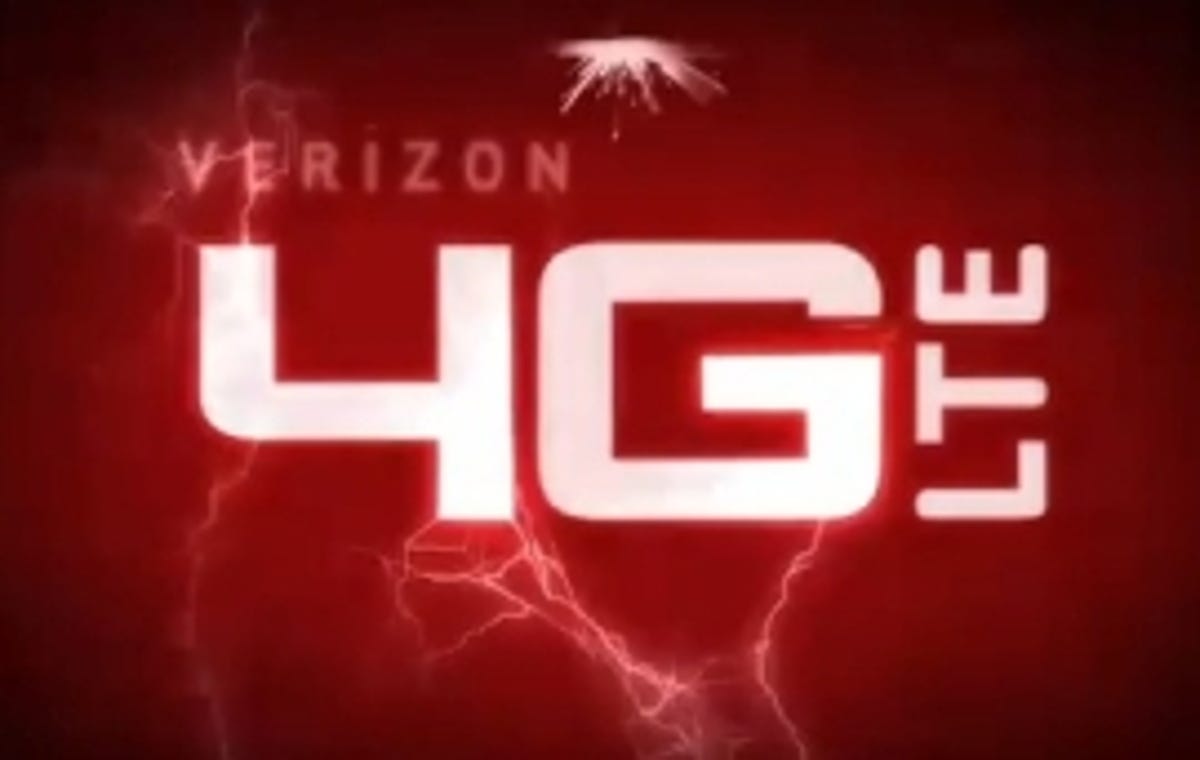The promise of super-fast 4G wireless broadband sounds enticing, but what happens when you can’t actually get the 4G service? That’s the question one reader who just got the new 4G LTE-enabled Samsung Galaxy Nexus is asking.

No 4G service. Should I keep the Samsung Galaxy Nexus?
Dear Maggie,
Four days ago I took delivery of my new Samsung Galaxy Nexus. I rarely get a 4G connection. Searching the Web about this problem, I see that lots of other people have had a similar problem.
I have 15 days to back out of my purchase. Time is running out. Please tell me what is really happening here.
Will Verizon’s 4G LTE network be upgraded with stronger RF components? Can this problem be solved cheaply with a new firmware roll-out? Does the phone need hardware upgrades? If so, might I assume purchasers of the Samsung Galaxy Nexus are SOL? Or can something be done to fix things? Perhaps I should be packing it up to send it back now. What would you do?
Thanks,
JCoan
Dear JCoan,
This is a tough question to answer, because it’s difficult for me to know from your question what exactly your particular issue is. There are a few things that could be going on here that are affecting your ability to get a data connection on your new Samsung Galaxy Nexus.


You are absolutely correct that some Galaxy Nexus subscribers have had a problem, although Verizon has said that the issue is not a signal strength problem but instead an issue with how the signal strength is interpreted and displayed on the phone.
“There is no issue with the performance of the device,” Verizon said in a statement on December 21, following complaints from users on Twitter and elsewhere on the Web. “There is a difference in the way the signal is translated into bars on the Samsung Galaxy Nexus compared to other smart phones. A future software update will adjust the signal strength indicator to more closely match other Verizon Wireless devices.”
Apple did a similar thing when there was a problem with the iPhone 4 when it was first released.
If the problem you’re facing is related to this issue, then you are likely unable to connect to the network because your phone is telling you that you have a signal when in fact you don’t. Or it may be that the 4G signal is weak, which results in a slow connection. While Verizon’s fix won’t boost the signal in places where you can’t connect to the network, it will make it easier for you to figure out where you should be getting a signal and where you should not expect to have service.
If this alone is the issue, I would probably keep the phone since the upgrade should help resolve that problem for you and make it easier to know where you can get a 4G connection.
But this first problem kind of leads to the second issue you may be having. You may be living and working in an area that doesn’t have great 4G LTE coverage yet. You can check Verizon’s map to see if this is the case. But even if it says you should have coverage, there’s a chance that there are holes in the network.
Verizon has said that eventually it will offer 4G LTE everywhere its 3G network is available. So if you get a good 3G signal today, eventually you should get 4G, too. But it’s hard for me to tell you when that might happen.
The good news is that Verizon is adding more markets almost monthly. Within a year it has rolled out service in 190 markets covering more than 200 million potential customers. The company also says that it’s filling coverage holes in existing markets. So even if your city or area is supposed to have 4G LTE and it stinks today, it could be much better within six months.
And finally, the problems you are experiencing may also be due to the various network outages that Verizon has had recently. In the month of December, Verizon 4G LTE customers saw their data service interrupted on three separate occasions. Customers were unable to connect to the 4G network and some said they were also unable to get 3G data as well. Meanwhile, customers with 3G-only devices didn’t seem to be affected by the outage. Verizon didn’t get into the nitty gritty details of what happened to cause these outages, but the company explained that its network is growing fast and these are “growing pains.”
Indeed, 4G LTE is a new network. And Verizon is the first major carrier in the world to deploy such a network on such a wide scale. There are bound to be issues.
So to answer your question: Should you send back your Samsung Galaxy S and get something else? Or should you keep it and hope for the best?
First of all, the Samsung Galaxy Nexus is a great phone even without 4G. It’s the first device to get the latest Android 4.0 software Ice Cream Sandwich. And it’s a pure Google phone, which means that it’s more likely to benefit from advances in future Android software updates, more so than some other Android phones. So even without 4G, I think the Galaxy Nexus is a good device.
When it comes to 4G, I think there are two things you have to ask yourself. First, are you willing to wait for Verizon to build out its network so you get better coverage? And second, are you willing to put up with being an early adopter on a new network?
I think the coverage issue will likely be solved relatively soon for most Verizon customers. So I’d probably keep the phone and hope for the best. And the reason I say this is that the 4G speeds are impressive. It’s like going from a dial-up Internet connection to broadband on your phone. And Verizon has already been aggressive in its build-out of the network. I expect it to continue building the network.
But living with the growing pains of this new network might give me pause. So your other option is to return the phone, get a 3G device, like the iPhone 4S, and wait for the network technology to mature before buying a 4G device. A problem that occurs with almost every technology migration is that in the early days when devices have to switch between the old network and the new network, there are issues in the network hand-off. That seems to be a problem that a lot of Verizon 4G LTE subscribers have been complaining about since these 4G phones started hitting the market. And the problems are not isolated to the Samsung Galaxy Nexus, but they seem to have been a problem for some customers using almost every 4G LTE device Verizon has on its network. The hand-off between 3G and 4G and 4G and 3G isn’t always a smooth one.
In general, I would probably lean more toward recommending you keep the phone. The network will likely improve quickly. Plus, the Samsung Galaxy Nexus is just a great device. But if the 4G coverage lapses and Verizon hiccups will drive you nuts, send it back and get a 3G device. The next generation of 4G smartphones will likely have far fewer problems. I hope this advice was helpful. And good luck!
Verizon leads 4G pack
Dear Maggie,
If you were choosing between Verizon Wireless, AT&T, Sprint Nextel, or T-Mobile USA for 4G wireless service, which would you choose? I know all four of these carriers supposedly offer 4G, but which one do you think is best?
Thanks,
James
Dear James,
If I was specifically in the market for a 4G service, I’d have to say that Verizon Wireless has the fastest network around. And Verizon has a very impressive list of smartphones that operate on this network.


The reason I recommend Verizon over the other operators is that its 4G service uses a technology called Long Term Evolution, or LTE. This is the technology that most major wireless operator around the world will be deploy for their next generation wireless networks. Sprint Nextel currently uses Clearwire’s WiMax network for its 4G wireless service. But it will also soon deploy LTE.
AT&T, which claims that its HSPA+ wireless service is 4G, is also deploying LTE for its real 4G wireless network. T-Mobile USA is the only major U.S. carrier that hasn’t announced plans for a 4G LTE network. That said it has invested in the latest generation of HSPA+ technology so in some locations, its network could be twice as fast as AT&T’s.
Verizon is the furthest along in its LTE deployment and currently has a wider selection of devices. That said, being first has its issues. The carrier has experienced three outages in the past month. And the company has admitted that the problems are associated with issues related to scaling this network.
Still, I think Verizon has the strongest position when it comes to 4G. That said, I would not select a wireless carrier solely based on its 4G network. The most important thing for consumers to consider is which carrier offers the best coverage for where you live and work. And I don’t mean just 4G coverage. Since most 4G networks are still in their early days, it’s important that the carrier you choose has good 3G and even 2.5G coverage, so that if 4G isn’t available, you’re able to make a phone call and use your data plan.
Price is another important factor to consider. Verizon Wireless is among the most expensive carriers in the U.S. Depending on where you live and where you’ll need coverage, you can get decent service at a lower cost.
And phone selection is also important. While all the major wireless carriers today offer different versions of Google Android devices, they don’t offer all the exact same phones. Still, it seems that most carriers are trying to remain competitive when it comes to phones. In 2011, Verizon Wireless and Sprint Nextel started offering the Apple iPhone. Previously, it had only been offered through AT&T. Unfortunately for T-Mobile customers, it’s still left out of the iPhone party. But there are other cool devices on T-Mobile.
At any rate, 4G is important, but it’s not the only thing. I hope this advice was helpful. Good luck!
Ask Maggie is an advice column that answers readers’ wireless and broadband questions. The column now appears twice a week on CNET offering readers a double dosage of Ask Maggie’s advice. If you have a question, I’d love to hear from you. Please send me an e-mail at maggie dot reardon at cbs dot com. And please put “Ask Maggie” in the subject header. You can also follow me on Facebook on my Ask Maggie page.



